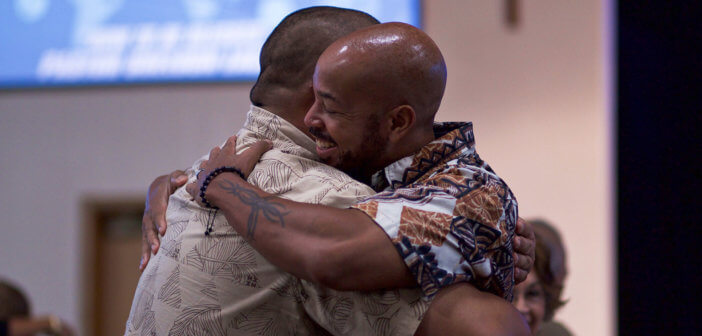People are less inclined today to join a church than in the past, even if they are interested and involved. But membership still matters, says Jayson Bradley, as it is a proclamation of commitment, belief, mutual support, and a desire to mature as part of a community.
Church membership is a concept that some people really struggle with. I can go to the church near my house and, at any time and for any reason, leave and go to a different church down the street. The only thing that keeps me in a church is my desire to attend. But Christians aren’t intended to operate as a bunch of anonymous, consumeristic nomads.
And it can be really difficult to care for and nurture people in a culture where commitment is completely ethereal. Pastoring is all about permission. A pastor isn’t really pastoring everyone who attends. There are people there who have made the decision in their heart that the minister can lead them, and others who have not. But how is the shepherd to know who is their sheep and who isn’t?
For that matter, how does a church body know who is a devoted member of their congregation and who is just on an extra-long sabbatical? Membership is a tool that can truly help. Through membership I make a proclamation that:
1. This is my church.
You would think that going to church regularly should be enough to communicate your commitment. But there’s something that happens in us when we stand up in front of God and everyone and say, “I am dedicated to this community.” It’s the difference between living with someone and marrying them.
2. I agree with their beliefs.
Most people who attend a church don’t really have any idea what their church believes about different doctrinal issues. The membership process is a great way to discover what beliefs are most important to these worshipers — and what you truly believe.
3. We’re committed to supporting each other.
Membership isn’t about simply agreeing to some theological principles and pledging yourself to a church building. You’re telling this community that you’re there for them. Their concerns are your concerns. Their needs your needs. In turn, they’re there to support and encourage you, too!
4. I trust the church leadership to help mature me.
This is probably the biggest sticking point for most people considering membership. The idea that people can meddle in our lives isn’t a very popular in our culture. In our culture, we don’t want someone poking around in our business.
Christianity isn’t simply about regular quiet times and listening to sermons. It’s about opening our lives and inviting spiritually mature people in to encourage, edify, and empower us to live more dynamically. This requires vulnerability and mutual submission.
Membership doesn’t save us.
Joining a church isn’t a salvific act. But being committed to a community of faith is integral to our spiritual growth. Membership might not be prescribed biblically, but it’s a powerful step in a transformational direction.
This article is adapted from a blog post on Ministry Advice, Jan 23, 2017. Used by permission.
Related Resources
- Be the Welcoming Church Video Tool Kit
- Top 10 Learnings about Welcoming Newcomers by Keith Anderson
- Which Comes First — Belief or Belonging? by Lovett H. Weems, Jr.






